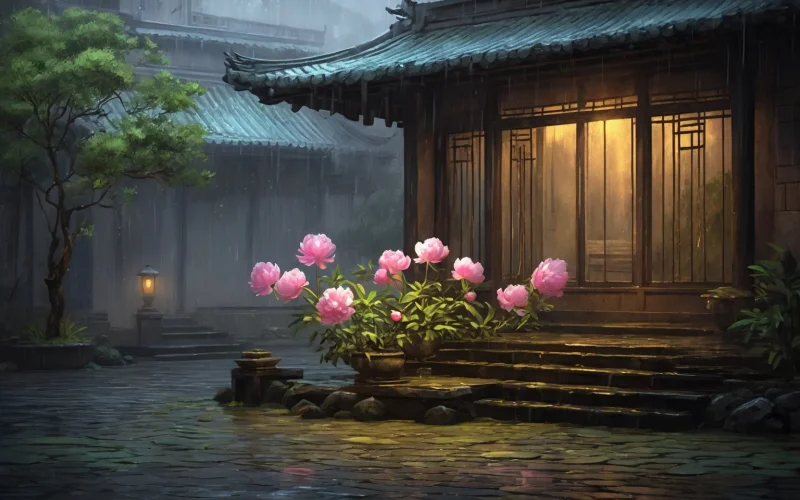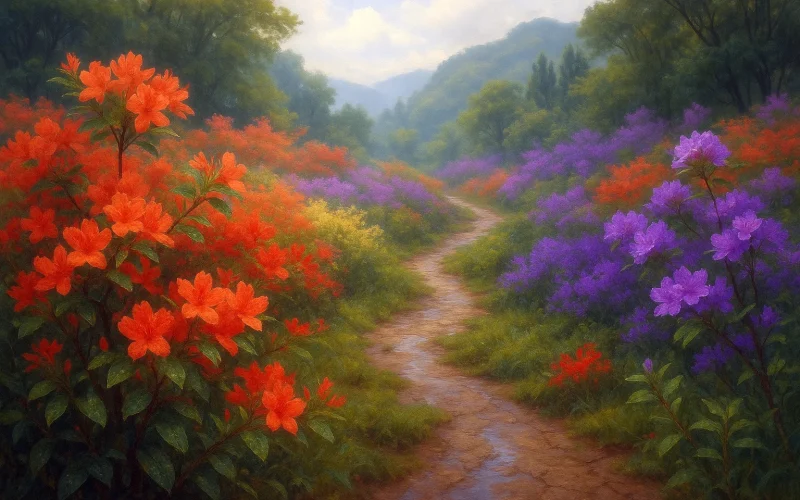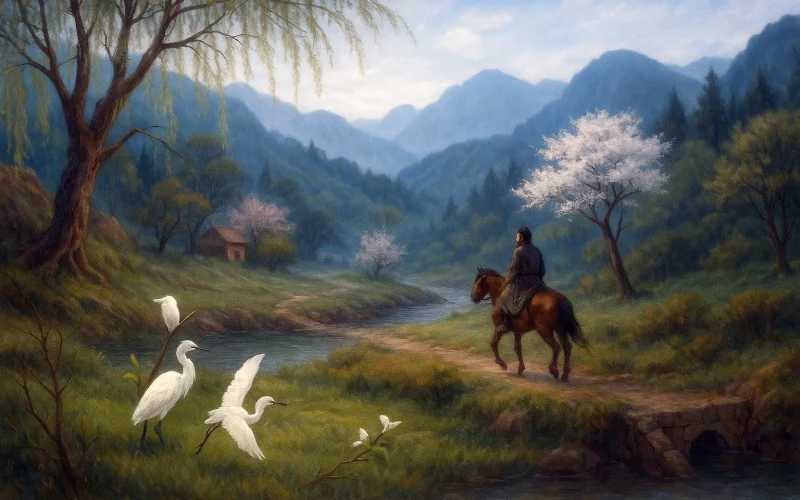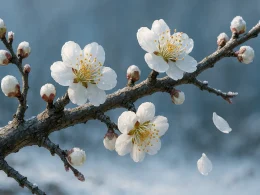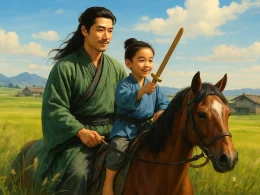Children’s breath snores softly in the still hall;
Who keeps company with the lonely scholar?
In spring chill, the silent night, lamp-wicks fall—
I count the watch-hours, unable to sleep.
Original Poem
「春夜孤坐三首 · 其一」
杨万里
儿女齁齁鼻息声,虚堂谁伴一先生。
春寒夜静灯花落,数尽残更睡不成。
Interpretation
This set of poems was likely composed during Yang Wanli's later years of leisurely residence in his hometown. In the mid-Southern Song Dynasty, frequent warfare and political instability led to Yang's repeated demotions and career frustrations. After returning home, he often turned to themes of self-consolation and reflection. This series emerges from such a state of mind. Sitting alone at night in the empty hall, faced with the sound of his children sleeping deeply, the poet finds no solace within—instead, he grapples with both the disappointments of a thwarted official career and a profound sense of life's solitude.
First Couplet: "儿女齁齁鼻息声,虚堂谁伴一先生。"
Érnǚ hōu hōu bíxī shēng, xū táng shuí bàn yī xiānshēng.
Children’s breath snores softly in the still hall;
Who keeps company with the lonely scholar?
The poet contrasts the deep sleep of children (齁齁 hōu hōu, an onomatopoeia for snoring) with his own solitude in the empty hall (虚堂 xū táng). The rhetorical question emphasizes his isolation, heightened by the quiet night.
Second Couplet: "春寒夜静灯花落,数尽残更睡不成。"
Chūn hán yè jìng dēng huā luò, shǔ jìn cán gēng shuì bù chéng.
In spring chill, the silent night, lamp-wicks fall—
I count the watch-hours, unable to sleep.
The stillness of the night (夜静 yè jìng) and the falling lamp-wicks (灯花落 dēng huā luò) symbolize the passage of time and the poet’s wakefulness. "Counting the watch-hours" (数尽残更 shǔ jìn cán gēng) vividly depicts his insomnia and lingering solitude.
Holistic Appreciation
This poem captures a moment of profound loneliness on a cold spring night. The contrast between the children’s peaceful sleep and the scholar’s restlessness highlights his emotional isolation. The falling lamp-wicks and the endless counting of night hours convey a sense of time dragging on, emphasizing his inability to find peace. Yang Wanli’s minimalist yet evocative style turns a simple scene into a deep meditation on solitude and the passage of time.
Artistic Merits
- Contrast between sound and silence: The children’s snoring contrasts with the hall’s emptiness, intensifying the sense of loneliness.
- Symbolism of time: The falling lamp-wicks and the counting of night watches symbolize the relentless passage of time and the poet’s inner turmoil.
- Atmospheric depth: The "spring chill" and "silent night" create a palpable atmosphere of isolation and reflection.
- Conciseness and emotional resonance: In just four lines, the poem conveys a complex emotional state, typical of Yang’s ability to blend simplicity with depth.
Insights
The poem reminds us that solitude can be most piercing in the quietest moments, even amidst the familiar sounds of family life. Yang Wanli’s introspection invites readers to acknowledge the weight of loneliness but also to find beauty in its expression. It reflects the universal human experience of sleepless nights and the search for meaning in solitude.
About the Poet
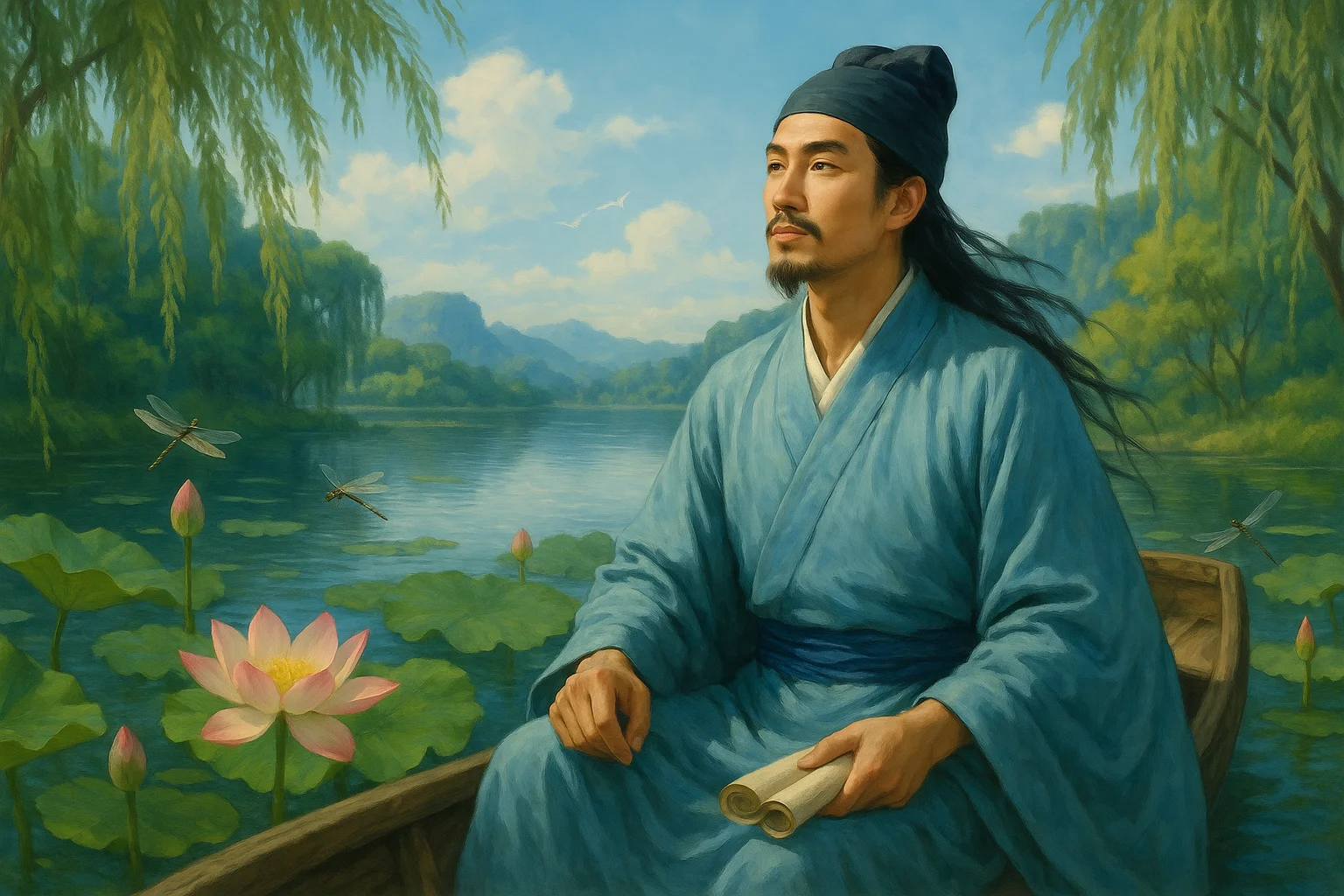
Yang Wanli (杨万里 1127 - 1206), a native of Jishui in Jiangxi, was a renowned poet of the Southern Song Dynasty, celebrated as one of the "Four Great Masters of the Restoration" alongside Lu You, Fan Chengda, and You Mao. He attained the jinshi degree in 1154 and rose to the position of Academician of the Baomo Pavilion. Breaking free from the constraints of the Jiangxi School of Poetry, he pioneered the lively and natural "Chengzhai Style," advocating for learning from nature and employing plain yet profound language. His poetry, often drawing inspiration from everyday life, profoundly influenced later schools of lyrical expression, particularly the Xingling (Spirit and Sensibility) School.






